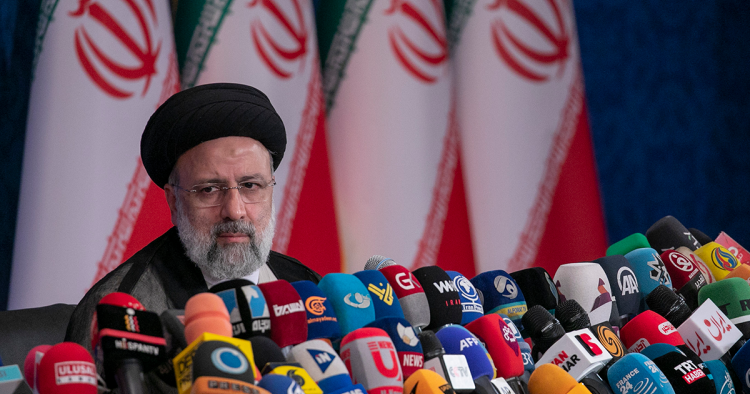Incoming Iranian President Ebrahim Raisi may break the mold of his predecessor by exceeding expectations in his first 100 days, but make no mistake—less horrific is still horrific; no one should be fooled.
Recall that, as the newly-elected Hassan Rouhani was being ushered into the international arena in 2013 as the Islamic Republic's new president, his reputation preceded him. Hopes were high. Prepackaged by the media as "charming," "reformist" and "moderate," he represented a stark departure from his cartoonish predecessor, Mahmoud Amadinejad. An unrealistic promise of reform filled the news headlines and foreign policy roundtables.
This fantasy of moderation paved the way for the West to pursue a new "diplomatic" relationship with a regime that consistently and unapologetically called for the death of the "Great Satan." Rouhani and Javad Zarif, his foreign minister, led a so-called charm-offensive that was greeted with wishful optimism by the Obama-Kerry team. It prompted the great experiment of the Joint Comprehensive Plan of Action (JCPOA)—an agreement that slowed but never halted Iran's nuclear enrichment program and failed to deliver any meaningful economic and social reforms to the Iranian people.
Nine years later, Ebrahim Raisi has embarked upon the first 100 days of his tenure in the same role but with a very different tone. He brings a brash and unapologetic persona to the presidency. Frequently described as "the Butcher of Tehran" because of his decades-long resume filled with death sentences and random acts of repression, Raisi revels in his feared aura.
Raisi apparently has no plans for any type of "charm offensive." Instead, the regime is casting an unmistakable tone of belligerence and lowering expectations on both domestic and international fronts. The fear of what lies ahead could lead the international community to rush into dreadful agreements and policies with this new leader, fearing that the window will close on better outcomes; and on the domestic front, a reign of fear and hopelessness appears likely to lead to continued unrest.
This would be a tragic mistake that only would strengthen the hand of the Butcher of Tehran.
Photo by Majid Saeedi/Getty Images
The Middle East Institute (MEI) is an independent, non-partisan, non-for-profit, educational organization. It does not engage in advocacy and its scholars’ opinions are their own. MEI welcomes financial donations, but retains sole editorial control over its work and its publications reflect only the authors’ views. For a listing of MEI donors, please click here.













